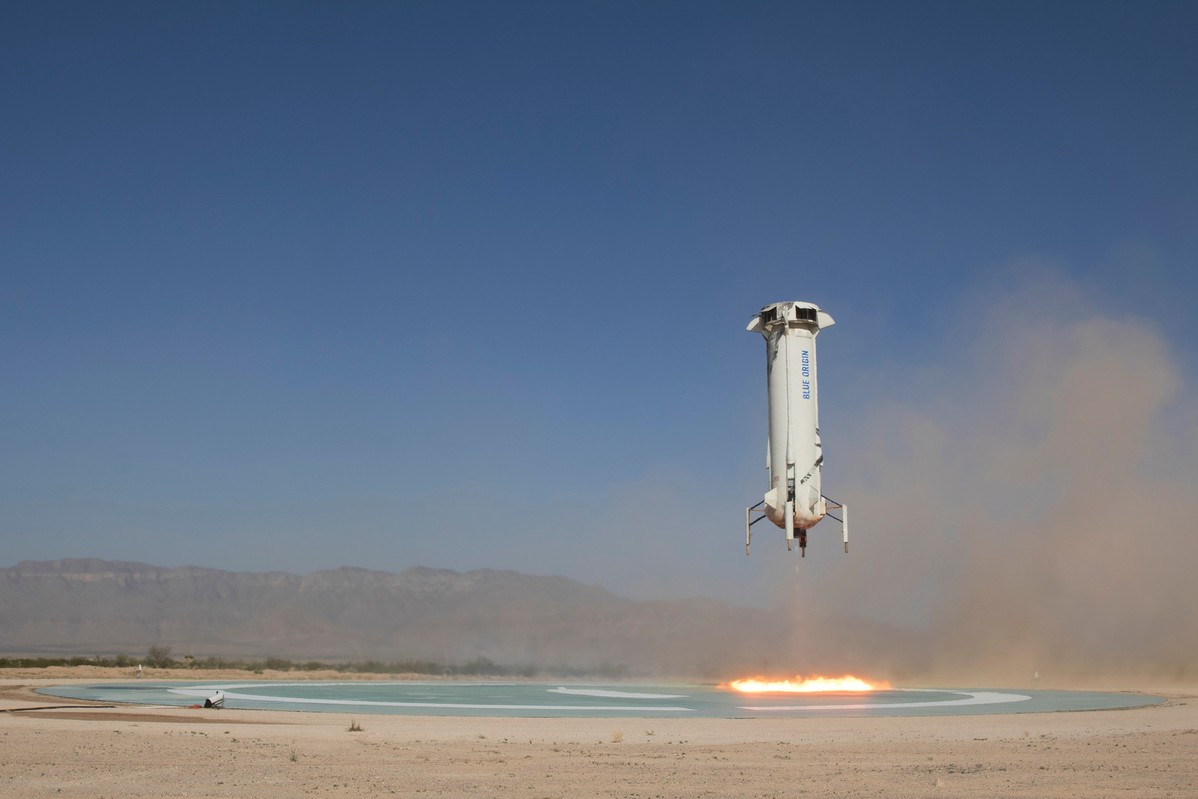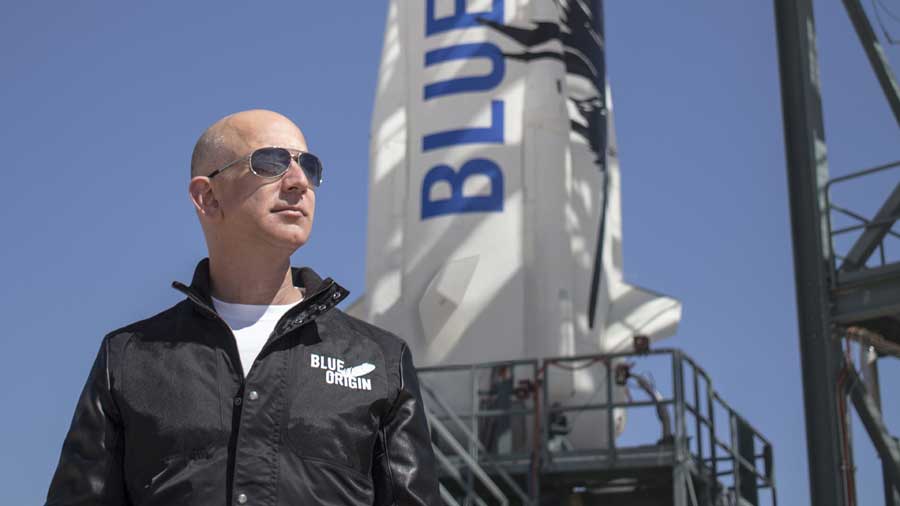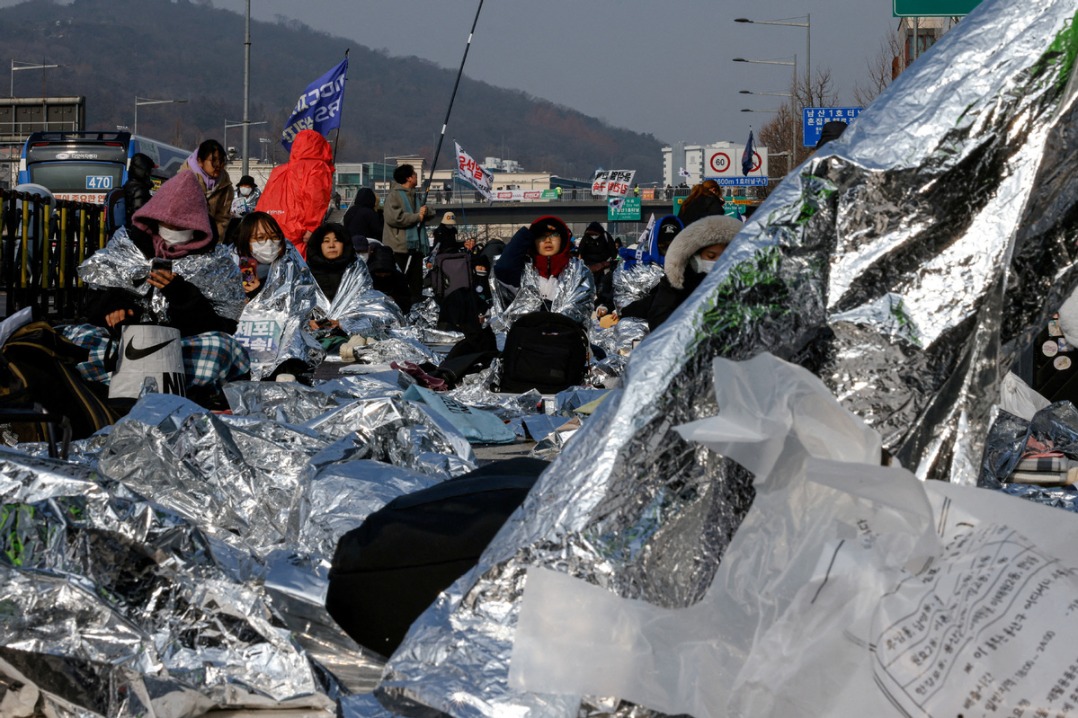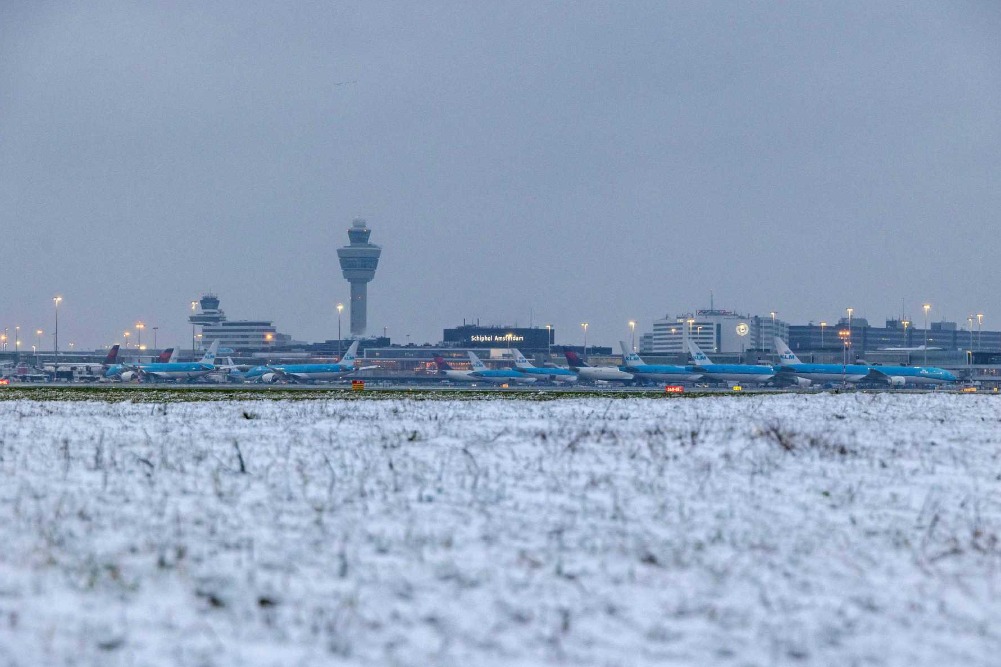Amazon founder's Blue Origin tests safety system for space tourists


CAPE CANAVERAL, Florida - Jeff Bezos' Blue Origin rocket company shot a capsule higher into space on Wednesday than it's ever done before.
The New Shepard rocket blasted off from West Texas on the company's latest test flight. The entire mission took less than 12 minutes to unfold, with the capsule hitting a maximum speed of 3,598 km/h and height of 119 kilometers.
It's part of a safety system intended to save lives once space tourists and others climb aboard for suborbital hops.
Wednesday's passenger was Mannequin Skywalker, an instrumented dummy in a blue flight suit that's flown before, plus science experiments.
The booster and capsule - both repeat fliers - landed successfully. It was the ninth test flight and lasted 11 minutes.
"Crew Capsule looks great even after it was pushed hard by the escape test. Astronauts would have had an exhilarating ride and safe landing," Bezos said in a tweet. "Great engineering and the lucky boots worked again."

More than 20,000 people tuned into Blue Origin's You-Tube livestream to watch the live separation test of the crew capsule from the rocket booster and everything preformed as expected.
It is one of the New Shepard's most critical test to date, which has demonstrated a key safety feature for space tourists and scientists riding on the company's future rockets.
The last New Shepard launch, which took place in April, went smoothly as well, with the rocket reaching almost 107 km, slightly higher than the company's typical target of about 100 km, the altitude widely accepted as the boundary line for space.
Blue Origin has yet to announce when it will start selling tickets or how much flights will cost. Launch commentator Ariane Cornell promised it would be soon. "It's coming," she said.
Bezos, founder and chief executive of Amazon, aims to send people and payloads into orbit from Cape Canaveral. Those missions will rely on the bigger, more powerful New Glenn rocket still under development. It could directly compete with SpaceX for commercial launch contracts.
He's named his rockets after NASA's original Mercury astronauts Alan Shepard, the first US citizen in space, and John Glenn, the first US citizen to orbit the Earth.
AP - Xinhua































